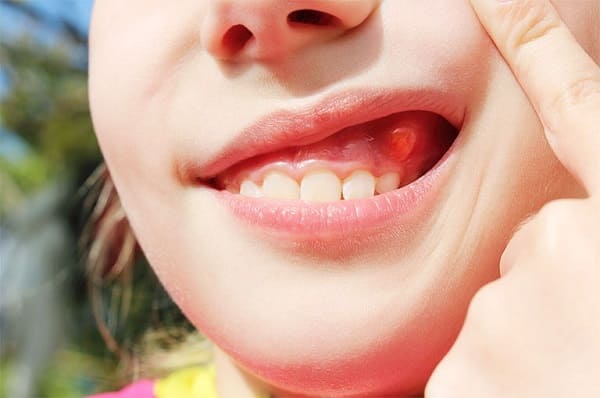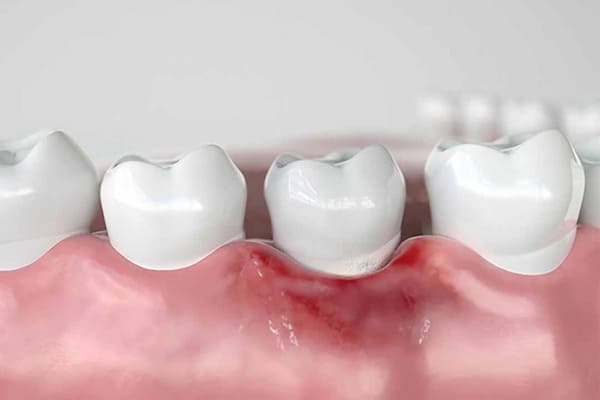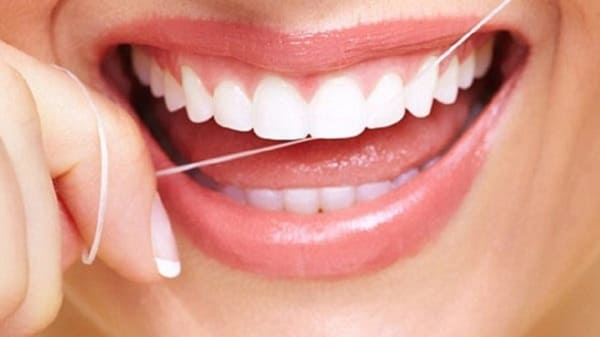Purulent gingivitis: causes and safe treatment
White purulent gingivitis is a fairly common condition in both adults and children. So what is the cause of this situation? Is there a safe and effective treatment? Please refer to the following article for the answer!
1. What is purulent gingivitis?
When the roots of the teeth or gums are infected due to the attack of bacteria or because tartar is formed and spreads from the teeth down to the gums, leading to gingivitis. Gingivitis occurs and forms pockets of pus called festering gingivitis or tooth abscess.

The condition of the gums or the roots of the tooth with pus can cause pain with varying degrees, depending on the case. Even pain can spread to other parts such as the jaw, ears and neck. If the condition of swollen and pus-filled gums is not treated in time, it can lead to many other dangerous diseases, especially blood infections, which directly threaten the patient’s life.
2. Causes of purulent gingivitis
Swollen gums with pus is one of the common oral diseases, which can occur at any age. Causes of purulent gums can be:
- Have periodontitis. When you see the condition of swollen gums with pus, it means that the disease is serious. If pus in the gums is not treated in time, it will cause tooth damage, alveolar bone damage, and adjacent teeth …
- Hot spicy diet, high in sugar,…
- The situation of wisdom teeth erupting easily makes the gums swollen and painful
- Tooth decay, bacteria that spread tooth decay causes swelling and sores on the gums.
- Poor or improper oral hygiene damages the gums, causing the gums to bleed.
- The side effects of some drugs limit the washing away of plaque and dead cells in the oral cavity.
- Hormonal changes during menstruation, puberty or pregnancy make the mouth susceptible to bacteria.
- Using food or drink when it is too hot causes burning or sensitivity of the gums, swelling of the gums.
- Smoking causes oral bacteria to grow.
- Radiation therapy, the use of drugs to treat cancer.

3. Symptoms of purulent root inflammation
There are quite a few symptoms that signal that you are suffering from purulent root canal disease. Specifically as:
- Toothache: a dull ache that persists when eating and drinking and even when lightly touching the teeth or cheeks. The pain is worse when lying on the side of the inflamed gums.
- Teeth are more sensitive, easily sensitive when swollen gums have pus.
- Bitter mouth: This is the main symptom when the gums swell with pus, accompanied by a feeling of discomfort, loss of appetite, loss of appetite.
- Bad breath: when the root of the tooth has pus, it will cause bacteria in the mouth to increase, leading to an unpleasant bad breath.
- Fever: When swollen gums with pus become worse, it can cause a fever.
- Swollen cheeks, face, lymph nodes in the neck: swollen gums with pus can also cause symptoms to spread, making both cheeks and face swollen, even the neck area appears lymph nodes.
- The area of festering gingivitis is swollen, bright red or dark red.
- Loose or discolored teeth, tooth roots look slightly longer due to receding gums.

4. Some effective treatments
4.1 Mild purulent gingivitis stage
In case you just have mild pus-filled gums, the infected area is not much, you can refer to the treatment of purulent gingivitis as follows:

- Gargle with salt water or green tea: Remove harmful bacteria for the mouth, reduce toothache, inflammation of the gums, bad breath.
- Use fresh ginger: decoction a little fresh ginger and then dilute it to drink, up to 3 times a day.
- Use oregano leaves: take 200g of fresh oregano leaves and a pinch of salt and boil to gargle 3-5 times a day for about 2 weeks.
- Use chrysanthemum: pound a little fresh chrysanthemum to get water and then dilute it and drink it 2-3 times a day for about 1 month, both reducing the condition of purulent gums and eliminating bad breath.
- Clean teeth gently and properly.
- Use dental floss instead of toothpicks.
- Drinking 1.5-2 liters of water per day also helps
- Eat soft foods and rich in vitamins A and C (broccoli, kale, papaya, etc.), foods that are not too hot or too cold, and chew them gently.
- Do not use foods with sour, spicy, salty spices.
4.2. Stage of severe purulent gingivitis
- Take antibiotics and anti-inflammatory drugs as prescribed by your doctor.
- See your doctor to clean under the gums, the pockets of bacteria between the gums and teeth.
- If wisdom teeth erupt, wisdom teeth may need to be extracted if inflammation is severe,
- If purulent gum swelling has affected other soft tissues, surgical intervention may be required to remove the damaged periodontal part, add a gingival flap (if necessary) to avoid loosening, loose teeth, and tooth loss. .
5. Effective methods to prevent purulent gingivitis
To prevent gum swelling, apply the following suggestions:
- Clean teeth regularly, properly, gently.
- Build a complete, scientific, supplemented diet with calcium, protein, vitamins, etc. to strengthen the immune system, help prevent and treat dental diseases.
- Drink enough water every day.
- Use dental floss to clean your teeth after eating.

- Get tartar periodically every 6 months to remove plaque on teeth, prevent the risk of dental diseases
- Give up bad habits: smoking, drinking alcohol, beer, using foods and drinks high in sugar, spicy, hot,
In addition, dentists also recommend that you use salt water to rinse your mouth every day to remove bacteria and plaque. To save time making salt water and ensure effectiveness, it’s best to use mouthwash Dr.Muối Contains ingredients from natural sea salt to help prevent swollen gums with pus and help freshen breath.
With purulent gingivitis and accompanying symptoms, it is easy for the patient to feel pain and discomfort. Therefore, in addition to preventive measures and supportive treatment at home, combine the treatment prescribed by your doctor to completely treat this condition.
You Can Refer To More Articles:
Should I wash my nose with physiological saline?
Instructions for Self-healing Sinusitis with Physiological Salt Water
Tips for Treating Allergic Rhinitis with Physiological Salt Water Simple and Effective
Instructions on how to hydrate with salt water to treat bad breath
